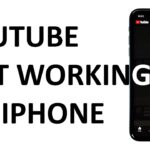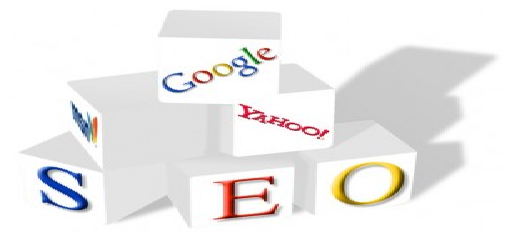Are You Not Understanding The SEO Jargon.
Have you ever read a blog with a bunch of SEO Jargon that you didn’t understand? You see words like metadata, metatag, keywords, bounce rate, and much more, but yet the author doesn’t explain them? Well in this post I like to give you the basic SEO Jargon you need to know and the meaning of each one…
A lot of us bloggers get into a state of confusion and bewilderment when those hardcore bloggers start speaking in SEO Jargon.
This just reminds me of living and traveling the United States. I’m from California. Our way of speaking and colloquialisms is different than, lets say those that live in New Orleans, Louisiana.
Although we all speak English, there are some slight differences, and sometimes we just have a hard time understanding each other.
For example, when I was younger, I use to visit my grandmother in Mississippi every summer. One summer, she had bought me a bicycle. I was so surprised and happy that she had got me one. It was like buying me a brand new car to a 12 year old.
I also had a slew of friends I use to hang out with whenever I go down there.
Well one day as I was riding my bicycle, one of my friends asked me an interesting question. He asked me “Could you pool me down yonder peace the way”.
Now lets put this together in just plain again because I actually understood what he said since I use to go down there every year.
Pool = Carpool = Can you give me a ride on your handle bars
“Peace the way” = half way down the street
Some of you that are southerners may already understood what this meant, but for the rest of us, you probably didn’t have a clue. But yet, it’s plain English!
Which brings me to the topic.
The internet is this vast entity that you can connect with people from all around the world. It was one of the pioneers that took us out of the Industrial Age and brought us into the Information Age.
The information age has brought the library to us in the comfort of our homes. We can look up just about anything on the internet via Search Engines. We just type in a couple of keywords or phrases and boom bam, the information we want comes up.
And if you have your own website or blog where you brand yourself and what you’re marketing, it’s important that your sites are able to be found.
There are certain rules to follow in order to optimize your sites to the fullest. But in order for you to know the rules, it’s important for you to understand the jargon.
So if you’re a blogger, and you want to be able to really get the best out of your blog, It’s important to know the SEO Jargon. Despite the fact that there are so many jargons within the Internet Diaspora, SEO Jargon is the dialect of generating traffic through search engines.
Learning The Internet Dialect Of SEO Jargon

Coming into the Blogging World (aka Blogosphere) can be quite intimidating and can leave you in bewilderment.
There are so many blogs out there, and everyone has something to say. There are those that blog as a hobby and of course, there are those that blog with a home business behind it.
As for me, when I came into the blogging game, I came in with a home business behind it. My goal was to attract people via my blog in order to build my business. I really didn’t have the slightest idea of how to use my blog to do this, but was advised to blog anyways.
I kept hearing about SEO and how I should optimize my blog. And what did optimizing my blog mean? Hell if I knew! And if you’re new to the blogosphere, you’re probably just in bewilderment as I was right about now!
There are some of you who have been blogging for over a year, and are familiar with some of the SEO Jargon. But I know sometimes you read a blog and you come across some words you seen before but yet don’t have to slightest idea of what it means.
Worse of all, the blogger that wrote the post doesn’t even define these SEO terms for you. Not saying that they have to all the time, but sometimes it helps for newbies.
So before I go into SEO Jargon, I want the newbies to know what SEO is. SEO stands for Search Engine Optimization and here a clear cut definition and a video that I got from Search Engine Land website!
Did you get that?
The video explains quite well for anyone to understand I believe. I just wished I saw it when I first got into blogging.
One thing to help you understand the SEO Jargon better is to get familiar of how search works. Instead of just throwing out a bunch of terms that you’ll probably forget right after reading this, I like to give you a general idea of how search works when people are looking up different subjects on search engines.
So I’m going to work backwards when it comes to the subject of SEO Jargon and how your websites and blogposts can benefit from SEO.
I talk about the general process of how your websites and blog posts get searched for when people use search engines like google to look for a particular topic.
Some of the terms you will see in this blog post are some common SEO Jargon that you will constantly see. I have added them to the list of common terms below. In this post, my goal is to not just give you the raw facts, but turning those facts into information. And learning how your site gets searched brings it all together.
The List Of Common SEO Jargon You Will See

Now that you’re more familar of what SEO is and how search works via the search engines, here is a list of 22 SEO Jargon words I came up with that I see quite often.
301 Redirect – It redirects a link from one URL to another. This is usually done when you leave a backlink on a site, but you change your URL later. If this happens you want to do a 301 Redirect so that site you left your backlink on doesn’t get penalized.
404 Error – An error where a page cannot be found or a link points to a page that cannot be found
Alt text – A description that you give an image that you put within your blog or website. To optimize your site for SEO you would include the keyword(s) within description
Backlinks – This is another word for incoming links. These are the links that are within your page that comes from other sites.
Black Hat SEO – This is the method use to trick and manipulate the search engines in order to get high rankings and generate a lot of traffic to your blog or website. If this method is discovered by Search Engines, this can lead into penalties.
Bot/Spider – This is a program that “crawls” your website or blog by a search engine to be indexed. It collects the content within the site and the links.
Bounce Rate – The number of visitors who leave a site without visiting other pages besides the one that landed on. This is usually show with a percentage.
Canonization – When your website is seen as http://www.yoursite.com and http://yoursite.com by the search engines can lead to some penalties. When you canonize, you tell search engines to focus on one of these which can improve your rankings.
Cloaking – This is an example of Black Hat SEO where you have one version your site for your visitors and another version of your site for search engines. This too can lead to penalties once it’s discovered.
Dofollow – A backlink that can be followed by crawlers (See Bot/Spider)
Headings – These are the subtitles within a website or blog posts which can rank from H1, which has the biggest font, and H6 which has the smallest font. These headings describe to subject within each section of your website or blog posts. To get the best optimization of your site, it’s common practice to include Keywords within them.
Keywords – This is a word or phrase that describes what the website or blog post is all about. This is important for readers to find your site(s) via search engines.
Long Tail Keyword – A search phrase made up of several words
Meta Data – This is information held about a page, blog post, or document which is only seen by search engines. It may include relevant keywords or the name of the author.
Meta Description – This is a description of your site of up to 200 words not visible to your readers but are shown in the SERP when your site shows up.
Meta Keywords – These are the keywords that are shown in the meta tag which is only seen by search engines or if you view the source code of your site.
Meta Title – This is a short title of up to 70 characters that can be viewed at the top of your site or when your website shows up in the SERP.
Meta Tags – See Meta Data
Nofollow – A tag that can be added to links that tells search engines not to follow or craw (see Bot/Spider) the site to give them good rankings. This is usually to include when you have affiliate links or backlinks so that you don’t risk the possibility of getting penalized (See 301 Redirect)
Pagerank (PR) – This is a scale ranking from 0 – 10, with 10 being the best, which estimates the importance of a webpage
SERP – Stands for Search Engine Results Page. This is a list of all the pages that comes up when you do a search using search engines (Google, Yahoo, Bing, etc…) using specific Keyword(s)
White Hat SEO – This is the opposite of Black Hat SEO. These are some the techniques used to promote your website or blog posts that adhere to the guidelines of search engines.
This SEO Jargon list is what I believe will lay down a strong foundation for all of you who will like to incorporate more SEO into your sites. Just knowing what SEO is, how search works, and the common SEO Jargon is will give you a great jump start with your sites.
But one thing I always advise is to focus on building relationships first. Relationships with your readers is the cake, and slapping on the SEO is the icing! If you’re consistent with both, then your results will definitely improve!
Now It’s Your Turn!
How many of you understand a lot of the SEO Jargon? How many of you don’t understand a lot of it? Has this post been helpful to understand better how the terms and how search work all come together? Is there anything you would add? Please leave your comments below and share this post with your friends. I look forward to read them!








